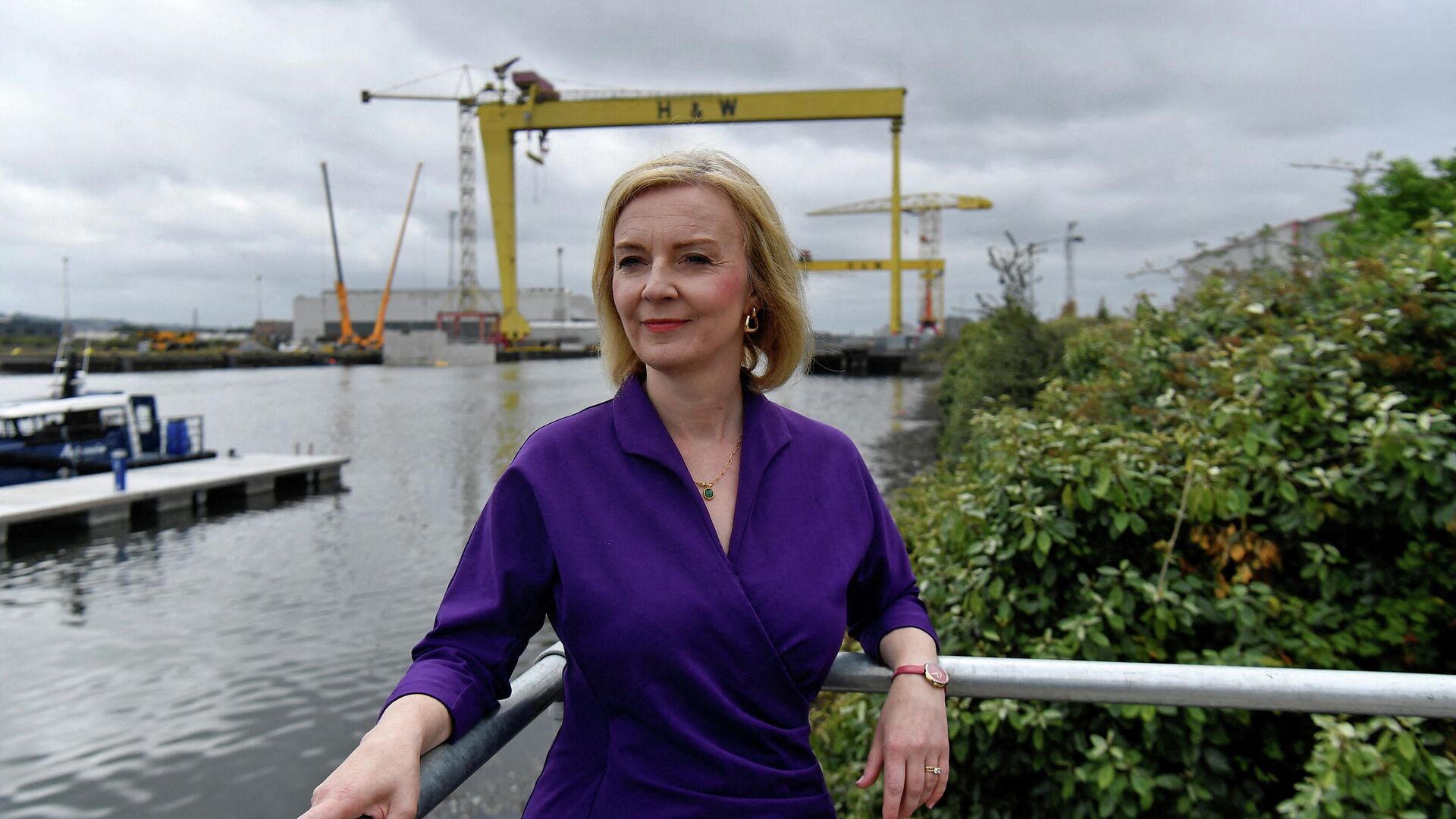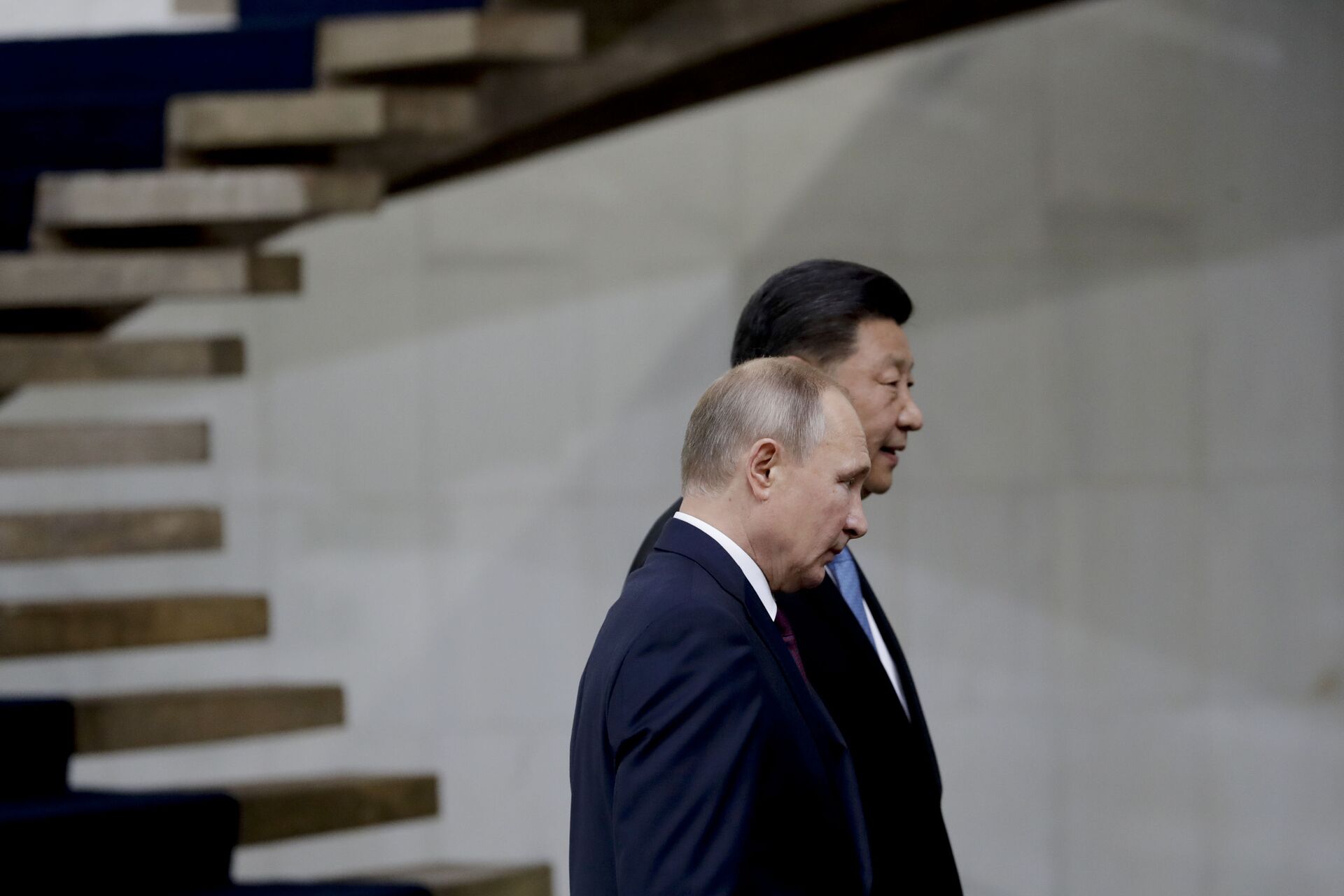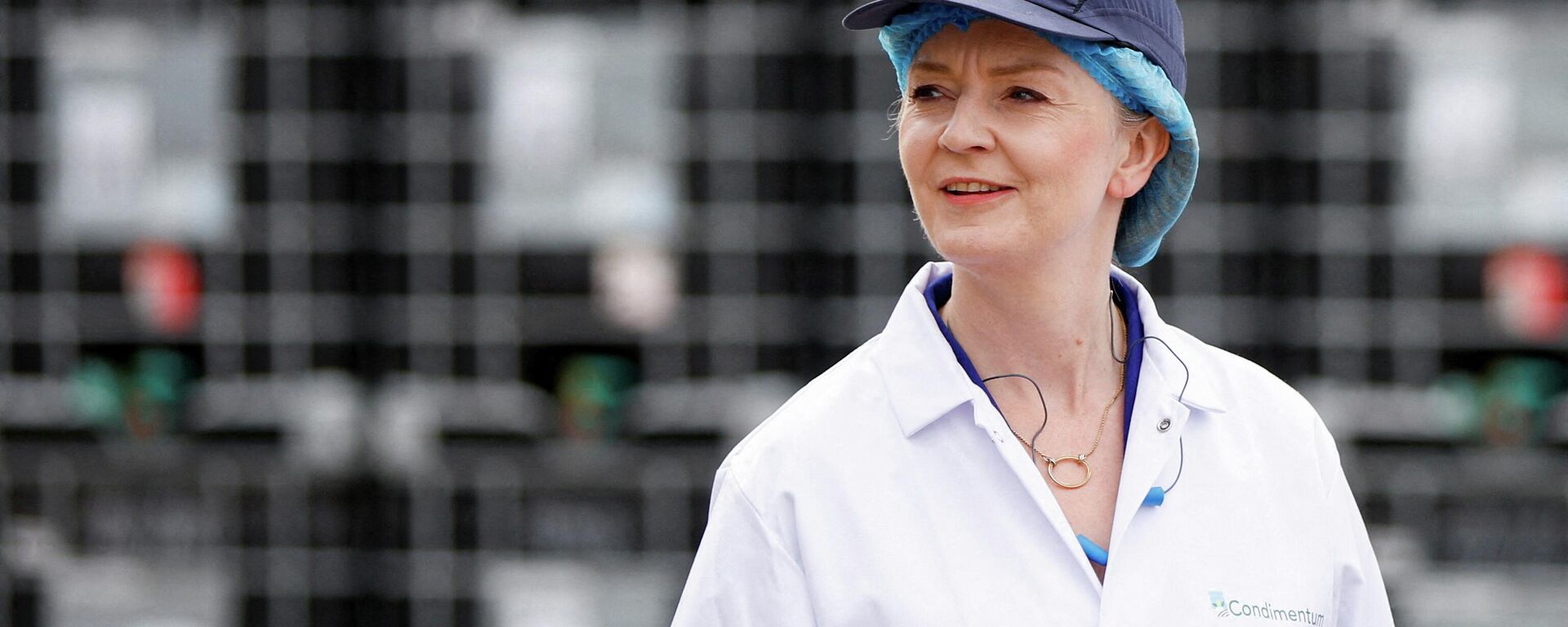Why Liz Truss Risks Becoming BoJo on Steroids Instead of New Maggie Thatcher for UK
18:31 GMT 06.09.2022 (Updated: 15:20 GMT 28.05.2023)

© AFP 2023 / CLODAGH KILCOYNE
Subscribe
Exclusive
Liz Truss was sworn-in as the 56th prime minister of the United Kingdom at a royal residence in Scotland on September 6. Even though the face of British politics has changed, the new PM is likely to follow in the footsteps of her former boss, Boris Johnson, international observers have told Sputnik.
Like BoJo, a Winston Churchill wannabe, Liz Truss also models herself on prominent British Prime Minister Margaret Thatcher, who led the British government between 1979 and 1990.
However, unlike Thatcher, Truss is neither an amazing speaker nor a force to bring Conservatives together, observers say. Like the Iron Lady, the new prime minister "assumes power when her country is in the dumps," but there's a big question mark over Truss' ability to make Britain "feel so strong as a country again," as Maggie did.
"Truss is a populist who has not yet presented any program," says Professor Alexey Gromyko, director of the Institute of Europe of the Russian Academy of Sciences (IE RAS) and corresponding member of the Russian Academy of Sciences. "Over the last two or three years of Johnson's premiership, most economic indicators have been going downhill. The UK is now in last place in the G7 economy. Six out of ten UK businesses may shut down, primarily those that depend on electricity and gas. In the coming months, Brits will start getting bills that will be several times higher than before. The likelihood of protests is high."
It raises questions whether Truss could deliver on her promise to gain a 2.5% annual growth target, as the British Chamber of Commerce (BCC) projects that the UK will enter recession before the end of this year, with economic growth expected to be weak into 2023 and 2024.
While on the campaign trail Truss advocated for tax cuts and boldly promised no energy rationing. For his part, her "chancellor-in-waiting" Kwasi Kwarteng hinted at "more borrowing" and claimed that the UK can handle a higher debt-to-gross domestic product ratio, according to the Financial Times.
"Unfortunately [Truss'] decision to cancel the corporation tax rise for the richest companies fails to understand big business privilege and small business strugglers," British academic Rodney Atkinson said. "Her energy market proposals are good: suspend the green levy, freeze energy prices for consumers and small businesses and approve fracking projects. But her planned increase in defense spending (already the highest as a percent of gross domestic product in NATO) will be inflationary. The Defense Department is notoriously wasteful."
According to Office for National Statistics, UK general government gross debt was £2.3 trillion ($2.65 trillion) at the end of the first quarter 2022 – equivalent to 99.6% of gross domestic product (GDP); UK general government deficit (or net borrowing) was £15.8 billion ($18.2 billion) in the first quarter of 2022, which is equivalent to 2.6% of GDP. Still, The Guardian assumes that Truss' tax cuts and aid to UK households could cost the UK almost £50 billion ($57.7 billion) to achieve. In addition to that, energy bills freezing could cost as much as £130 billion ($149 billion) over the next 18 months, according to Bloomberg.
Previously, BoJo's borrowing spree and excessive spending in the face of rising inflation prompted a lot of criticism from some British economists and contributed to Johnson's spat with then-Chancellor Rishi Sunak.
"[Truss'] spending and tax cuts are a high risk strategy and could lead to uncontrolled inflation and a public backlash before the next election," Atkinson warned.

Russia's President Vladimir Putin and China's President Xi Jinping walk after the family photo of leaders of the BRICS emerging economies at the Itamaraty palace in Brasilia, Brazil, Thursday, Nov. 14, 2019
© AP Photo / Eraldo Peres
Escalating Tensions With Russia & China
Meanwhile, the UK foreign strategy is unlikely to undergo a U-turn: Truss has long been known as a proponent of Johnson's "Global Britain" and an assertive anti-Russia and anti-China course. The new prime minister earlier signaled eagerness to step up military aid for Kiev as well as to designate China as a "threat" to national security.
"Initially probably the same aggression against Russia and the exploitation of Ukraine [are expected] but now that she sees the costs of sanctions against Russia in the energy market and inflation at home she might well learn the lesson of making peace," Atnikson remarked.
James Cleverly, a close ally of Truss, is poised to assume the role of foreign secretary, according to The Independent. Previously, he served as the education secretary in Johnson's government. Prior to that, Cleverly used to be the minister for Europe and North America, and also had responsibility for the Middle East and North Africa.
When it comes to the position of defense minister, most people in Westminster expect that Ben Wallace will retain his role, according to the New Statesman. Wallace is known for his hard-line stance toward the Russo-Ukrainian conflict. Truss' commitment to increase defense spending to 3% of GDP by 2030 and to double down on building a new generation of Dreadnought submarines to carry the country’s nuclear deterrent, shows that the new Cabinet will proceed with BoJo's "Global Britain" approach.
However, it's not just BoJo's legacy that is driving the UK's assertiveness: when it comes to European and Asia Pacific strategy, London is largely following Washington's suit, according to observers.
"As you know, British foreign policy largely emulates that of the United States," said Can Baydarol, vice president of the EU Research Association (ABKAD). "At the moment, it seems extremely unlikely that London will soften its position on Russia."
Alexey Gromyko also believes that Britain under Truss will continue to play second fiddle to the US in Europe and Asia:
"Truss will do everything to prove to the US that she is committed to her stance of dividing the world, not in words but in deeds, between democracies and authoritarian regimes," the Russian scholar said. "But the point is that when it comes to relations with Japan, the main player is the United States. There is a huge interdependence in the economic sphere. Britain can play only a secondary role. Moreover, in the near future, it will have to sink its teeth in sorting out problems at home; going for innovations in foreign policy will be difficult. The UK will only be able to inflame the relationship with Russia and China, mostly in declarative and rhetorical form."
EU's Uncomfortable Ally
The new British prime minister's election vows and her other reported No 10 picks indicate that she will double down on Johnson's immigration strategy, Brexit trade deals, and Northern Ireland Protocol, in particular.
According to the British press, Priti Patel is likely to be replaced with the Attorney General Suella Braverman. The New Statesman called Braverman "a hard-line right-winger," adding that she will be handed responsibility for stopping the flow of illegal migrants over the English Channel and continuing the controversial Rwanda deportation policy.
Chief Secretary to the Treasury Simon Clarke is seen as Truss’ top pick for the role of business secretary, with Trade Secretary Anne-Marie Trevelyan being rumored to preserve her position. The two are expected to deal with the negative consequences of Brexit and the pandemic, which sent both British imports and exports down.
As part of the effort to solve this dilemma, Truss is expected to reshuffle the Northern Ireland Protocol, according to Bloomberg. The media outlet expects that Truss may either trigger Article 16 of the protocol to suspend particular parts of the agreement or unilaterally override the protocol through the Northern Ireland Protocol Bill. Needless to say, this would lead to an escalation of tensions between the UK and the EU, Bloomberg predicts.
For its part, Politico warns about serious troubles in relations between London and its Western European allies under Truss in an article eloquently titled "Does the whole world hate Liz Truss?"
Following in the footsteps of Boris Johnson, Truss is unlikely to become Margaret Thatcher 2.0 for British politics, according to Gromyko. Unlike Thatcher, who played a prominent role in ending the Cold War and navigated the UK out of an economic crisis, Truss is expected to pour gasoline on the fire both in Europe and in the Asia-Pacific and, potentially, drag the UK into the inflationary abyss.


